Hector Hernandez stands in the kitchen of The Fife and Drum Restaurant, chopping carrots with a knife that is bound to the table by a steel cable.
The carrots are then served to a member of the public as he wears Northeastern Correctional Center’s all white uniform.
But he dreams of the day he can make Mickey Mouse chocolate chip pancakes for his two daughters in the comfort of his own home.
“ And just watch them eat it and just watch them be so happy at the table,” he said.
His dream is coming true in four weeks as he prepares to leave the Concord correctional center with the skills in hand to turn his life around.
“ From the bakery to the entrees to the sandwiches, I learned a little bit of everything,“ he said. ”So when I go home, I’ll be able to cook for my family, maybe even get a job as I’m going to college.”
And that’s the goal of the restaurant, which first opened in the 1970s.
“The guys here really learn a skill set that is immediately transferable upon their release,” said Shawn Jenkins, the commissioner of the Massachusetts Department of Correction.
“And anyone that knows this industry knows a good re-entry plan requires a good job placement program. And so this particular program really offers that for them,” Jenkins said.
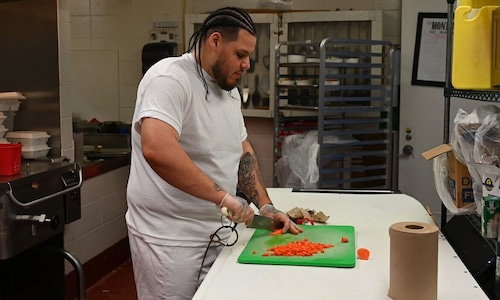
The Fife and Drum Restaurant, located at Northeastern Correctional Center in Concord, is used as a culinary arts program for the inmates housed at the facility.Taylor Sanzo
The restaurant is open Tuesday through Friday from
11:30 a.m.-12:30 p.m. Customers need to have exactly $3.21 in cash and they aren’t allowed to bring in items like a phone, laptop, purse or wallet.
Customers can’t wear jeans or jewelry, as prohibited by the correctional center. And you’ll be eating with a plastic knife.
But the food is worth it.
“My husband and I come to the The Fife and Drum quite often, usually a few times a week, and we’ve never had a bad meal here. It’s a great place to come,” said Annette Messina.
Multiple people said the chicken parmesan was their favorite meal, although the Italian calzone, chicken saltimbocca and blueberry crumble are also delicious.
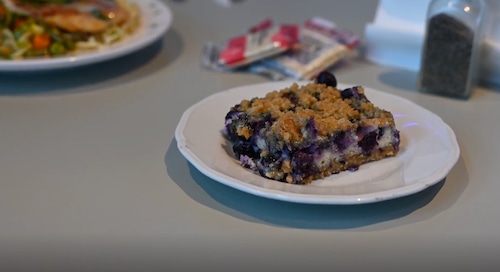
The Fife and Drum Restaurant at Northeastern Correctional Center is open to members of the public.Taylor Sanzo
The couple sometimes get seconds and get to take some of the recipes back home with them. Messina’s husband, Joseph, admits he can’t make the food as well as the incarcerated individuals “ but my wife gets close.”
It’s also about the connections.
“ When they first start, I tell them what our names are, and I ask them what their name is,“ Messina said. ”This way when we’re talking to them, we’re talking like we talk to Michelle, Joanne. You’re talking to just a regular person.”
The connections have also helped encourage Hernandez to stay on the right path.
“I know a lot of the customers here already,” he said, adding that one of the customers always ask for two desserts, so he automatically gets her two desserts. “They all wish me good luck and want me to do good out there.”
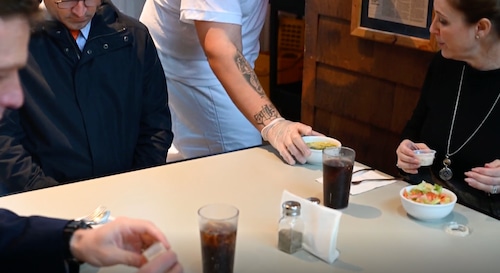
The Fife and Drum Restaurant at Northeastern Correctional Center is open to members of the public.Taylor Sanzo
When he was 24 years old, Hernandez was arrested and charged with assault and battery. He was trying to change his ways before he was arrested but it wasn’t working.
“I’ve done better, I think, in here than I’ve done my whole life,” he said. “Because I was trying to change when I was home, but it wasn’t at a fast pace.”
Since then, Hernandez got his GED, Competent Communicator certificate for public speaking, learned skills in the kitchen and more.
And Eddie Jacobs, the culinary arts instructor, doesn’t take it easy on the men in the program.
“ Everyone who works for me starts in the dish room. That’s how it is,“ he said. ”I don’t care if you were a chef on the street, if you were a carpenter on the street, everybody who starts my program starts in the dish room.”
That’s to teach them all a work ethic.
“Some of these guys never had jobs, never worked anywhere,” he said. “I try to help them with how to write a resume, find a job, how to do the math on a recipe.”
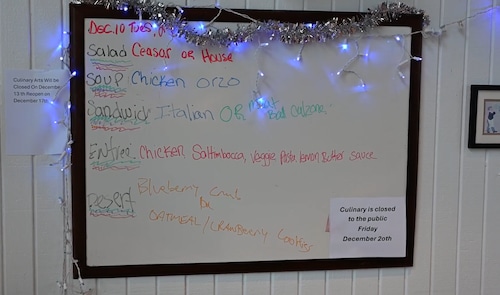
The Fife and Drum Restaurant at Northeastern Correctional Center is open to members of the public.Taylor Sanzo
He also gets them involved in making the menu.
“You gotta get them involved. You gotta keep them involved,” he said.
Hernandez recently suggested making enchiladas as he grew up making Spanish food. He also added onions to a recipe that Jacobs wasn’t so sure needed it.
“ I’m trying to put onions on it, but Eddie’s telling me, ‘Oh, the onions shouldn’t go on a ham and Swiss sandwich.‘ But I’m like, ‘listen, calm down. I’m going to make a brown sugar and mustard reduction and put it on top of the onions,‘“ he recalled. ”And then I made it and it came out great. Everybody loved it. It was fabulous.”
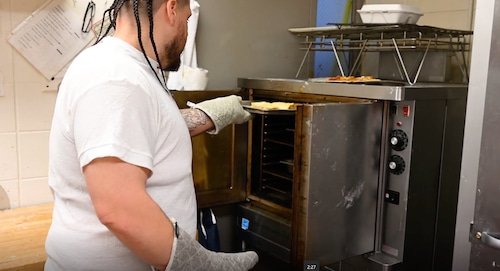
The Fife and Drum Restaurant at Northeastern Correctional Center is open to members of the public.Taylor Sanzo
Next, Hernandez wants to major in computer science. But what he learned in the kitchen — timing matters — will still apply.
“Everything’s on timing,” he said, adding that food gets ruined if you leave something in the oven too long or take it out too quick. “So, that can also work for me because out on the street, every minute counts. If you get to the bus stop a minute late, what happens? You miss the bus, and then all of a sudden you gotta wait. Now you’re late.”
For Robert Yandel, learning to cook can be his ticket to not reoffend.
“Every other time I just did the same old things and I ended up back here,” he said. “So I’m just trying something new. Hopefully this time it’ll help me out.”
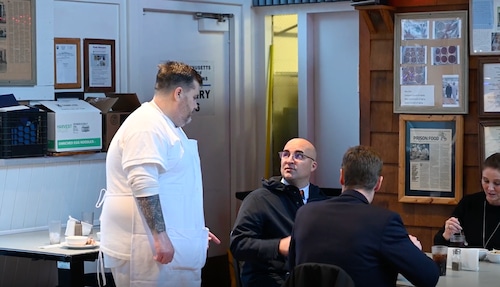
The Fife and Drum Restaurant at Northeastern Correctional Center is open to members of the public.Taylor Sanzo
Yandle has been part of the restaurant for eight months and hopes to continue with it as he finishes the last 10 months of his sentence related to drug charges.
It wasn’t easy at first being worried people would look down on him for being incarcerated.
“ But these people coming in, they don’t look down on us,” he said, adding that he enjoys getting to know them.
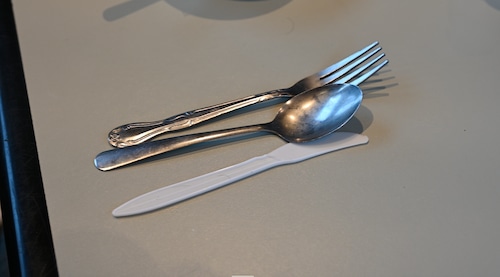
The Fife and Drum Restaurant, located at Northeastern Correctional Center in Concord, is used as a culinary arts program for the inmates housed at the facility.Taylor Sanzo
Holiday pies
The restaurant’s food isn’t confined to the walls of the correctional facility, since its pies make their way through the community each holiday season.
This year, the incarcerated individuals helped make 540 pies for the community, including for various Councils on Aging, veterans homes and fire departments.
“I love teaching and I love the charity work we do out of here. Every year it gets bigger and bigger,” Jacobs said.
The pies were apple, blueberry, squash and pumpkin. The apples were donated by an apple orchard and the squash was grown on the farm at the correctional facility.
“ We started about one in the afternoon, we finish usually nine o’clock at night. All one day. It’s like a big production line,” Jacobs said.
It started in 2021 with 400 pies and keeps growing.
“Probably next year it’ll be like 600 pies,” he said. “I don’t like to tell anyone no.”
And he knows he’ll be getting many calls again in September asking for the delicious baked goods on Thanksgiving.
Before sending out all the pies, the group always gets together to take a photo.
“So they could actually send something home to their family and say, ‘Listen, I did this for charity. I accomplished something today,’” Jacobs said.






